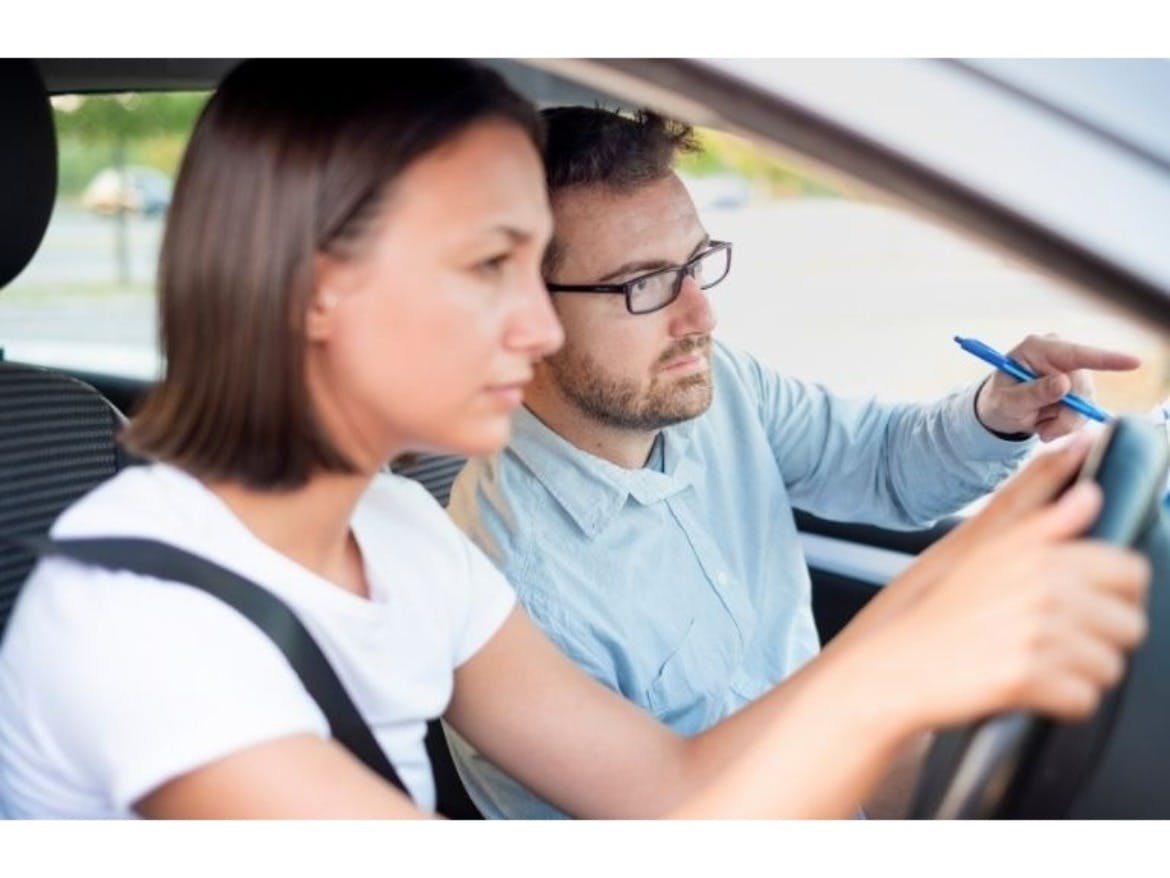The Best Second-Hand Wheelchair Accessible Vehicles (WAVs)
Choosing a second-hand Wheelchair Accessible Vehicle (WAV) is a big decision. There are many impo...

Whether you are learning to drive for the first time or are a full licence holder who wants to get back to driving after accident or illness, having a disability shouldn't be an obstacle. There are specially-trained driving instructors throughout the UK who can help. The Association of Disability Driving Instructors can put you in touch with a specialist in your local area who can help people with physical disabilities, special educational needs or those with hearing difficulties learn to drive or use an adaptation for the first time. They will help you prepare for getting behind the wheel of your own vehicle and drive it safely and confidently.
People with disabilities who need specialist driving tuition often find it difficult to locate an experienced and approved driving instructor with an adapted or automatic vehicle. The Disability Driving Instructors database of approved specialist instructors means people with a disability have a place where they can find a local driving instructor, together with impartial advice about learning to drive, how to return to driving after an accident or illness and how to stay safe on the road.
Everyone is different, so it will depend on your individual circumstances.
In recent years the technological improvements that have been made to cars have made it easier than ever for more people with a disability to learn to drive, and there's a huge range of vehicle options, specialist modifications and adaptations available to help people to drive safely and comfortably.
A Driving Mobility assessment is advised if you are unsure as to what adaptations will be required, although you may find that advice from a specialist driving instructor will be more suitable.
All new drivers are advised to take driving lessons with an approved driving instructor and if you have a disability, you may prefer to learn to drive with a specialist instructor who has experience in teaching people with disabilities. These specialist driving instructors will be more aware of your needs and will be able to adapt the tuition to help teach you in the most appropriate way. They will also be experienced in the use of the different specially fitted driving adaptations that are available and will be able to show you how to use them safely (if you need them).
If you are planning on driving a new vehicle that you lease through the Motability Scheme, you may also be able to get a grant to help towards the cost of the lessons.
In the UK a young person with a disability may be issued with a provisional licence to learn to drive a car when they reach 16 years of age (a year before everyone else) if they receive the Higher Rate Mobility Component of Disability Living Allowance (DLA) or the Enhanced Rate Mobility Component of the Personal Independence Payment (PIP).
Otherwise you will have to wait till you are 17 before applying for and being issued with your first provisional licence.
If you have a disability and you want to learn, to drive to get started you'll need to apply for a provisional licence through the Driver and Vehicle Licencing Agency (DVLA). On the application they will ask you to list all your medical conditions so that they can assess whether or not you comply with the medical standards that mean you are considered fit to drive. If you are unsure if you meet these standards you are advised to discuss this with your GP.
Your local Driving Mobility centre or specially-trained driving instructor will be able to provide you with advice and information on whether you would be likely to meet the required medical standards of 'fitness to drive'. If you have a physical disability, they may suggest an adaptation that could make driving or getting into a vehicle easier for you. This could be something simple like a steering wheel ball, a transfer plate or an adaptation like a left foot accelerator or hand controls. They may also suggest that driving could be made easier by switching to a vehicle with an automatic gearbox. Specialist driving instructors often have tuition cars fitted with these sorts of adaptation.
For people with a more severe disability the adaptations may need to be more complex and you may need to learn to drive with a driving instructor in your own adapted Motability vehicle (as instructors usually only have basic adaptations fitted to their tuition cars).
As soon as you have your provisional driving licence you can start to learn to drive, contact a local specialist driving instructor as soon as possible to ensure that tuition can start when you want it to.
If you are a full licence holder who wants to start driving again after an illness or injury that has left you with a disability it's likely that the DVLA will need to be informed.
If you are unsure about your ability to drive safely, your doctor could refer you to a Driving Mobility Assessment Centre or you could ask Motability to refer you. A practical driving assessment would check your medical fitness to drive and look at your in-car driving ability, after which the qualified assessors would advise if adaptations are necessary and would make a series of recommendations for you to follow; they would also produce a formal written report.
If you have been advised to notify the DVLA you should send them a copy of the assessment report and they will then assess your medical condition to decide whether you can retain your current driving entitlement. They may decide to issue you with a shorter duration licence or a restricted licence if you need adapted controls. They will check to the Driving Mobility report if you have already had an assessment, and if you have not yet had an assessment, they may choose to refer you to your local Driving Mobility centre.
To help people with a disability learn to drive for the first time the Motability Foundation have a Driving Lessons Grant Programme that provides grants to help people pay for specialist driving lessons.
These charitable grants are means tested (which means they are only awarded to those in the greatest need) and they are available to people want to learn to drive who either currently have a vehicle leased through the Motability Scheme or who have applied to join the Motability Scheme and have a vehicle on order (that will be handed over within the next four months).
The scheme provides funding for 40 hours of driving tuition for new drivers which should be enough for most people to reach the driving test standard.
Motability drivers (who already have a full driving licence) who are using a new Motability funded adaptation for the first time can also apply for funding to pay for familiarisation lessons with a qualified driving instructor. This would help them to get used to the new method of driving controls before heading out on the road and driving independently.
Charitable Grants For Driving Lessons
Before being allowed to drive on the roads on your own, whether you drive a car with special adaptations or not, you’ll have to pass the theory and practical driving tests just like everyone else.

All drivers must pass the theory test before being able to take the final practical driving test out on the road.
As soon as you’ve got a good understanding of the Highway Code and studied for the multiple choice and the hazard perception parts of the test you can take a proper test at a local test centre, many of which offer specialist facilities for people with disabilities.
Candidates who have special requirements should mention this when booking the test, as the DVLA may be able to help. For example, you may be allowed extra time to complete the test or have somebody to read the questions for you if you have reading difficulties; if you are deaf you could apply to have a British Sign Language interpreter there with you to help.

When the times comes, and you and your instructor feel confident that you have reached the test standard you'll take the same practical driving test that every other candidate takes.
It may be necessary to notify the DVSA of any medical conditions or if you need to use adapted controls – your instructor would advise you if this is the case. If you feel that you need extra time to get into and out of the vehicle or to discuss any special vehicle adaptations with the examiner this will be allowed. If you are deaf or have severe hearing difficulties, we would also recommend that you notify DVSA. The driving test examiners have been fully trained to understand and adapt to any unique requirements that may arise before, during or after you’ve been out on the road.
Taking the practical part of the driving test is often a nerve-racking experience for new drivers and failing to pass first time is pretty common. If you do fail, you’ll be able to take a few more lessons, build up your confidence and take the test again in a months’ time. With focus and plenty of practice you’ll pass the test and be ready to enjoy the independence that driving your own vehicle brings.
Choosing a second-hand Wheelchair Accessible Vehicle (WAV) is a big decision. There are many impo...
Many organisations and companies offer a great range of money off discounts and additional financ...
Emily Nicole Roberts is a disability advocate and wheelchair user who uses her social media platf...
Isabelle Weall is a 17-year-old YouTuber and National Trampoline Champion who has used her platfo...
Upcoming regulations that will change how vehicles are made are set to cause huge disruption to m...
The Motability Scheme is a great way to enjoy the use of a car or a Wheelchair Accessible Vehicle...
Motability have updated their new car and Wheelchair Accessible Vehicle (WAV) Advance Payment pri...
If you've started shopping for a new Motability Scheme car and want to know which new models coul...
This won't take long...
Your enquiry has been sent and we will contact you using the details provided as soon as possible!
Please complete the form below:
By clicking “Send”, you’re happy for us to pass this information on to the seller in accordance with our privacy policy.